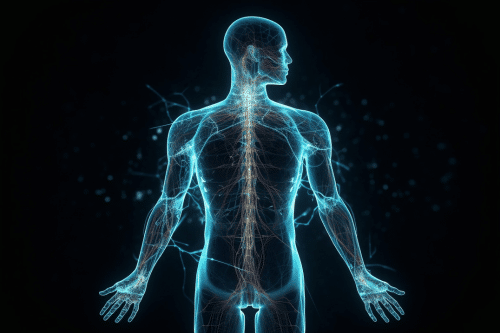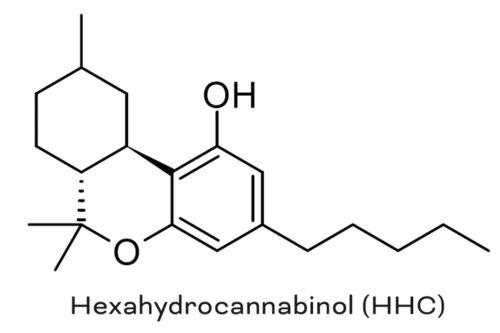HHC Effects: Understanding Its Impact, Benefits, and Risks
What Is HHC?
Hexahydrocannabinol (HHC) is a psychoactive compound derived from cannabis plants. It is considered a semisynthetic cannabinoid, as it is typically synthesized from hemp-derived CBD. While it shares similarities with natural cannabinoids, its chemical structure differs due to hydrogenation, a chemical process that enhances its stability. HHC is gaining popularity in the cannabis market as a legal alternative to THC, but its therapeutic potential and long-term health effects require further research.
How HHC Differs from THC
Chemical Structure and Production
HHC is formed by adding hydrogen atoms to THC, modifying its double bonds to create a more stable compound in cannabis. This hydrogenation process enhances HHC’s resistance to oxidation and degradation, making it different from conventional cannabis extracts.
Psychoactive Properties Comparison
As a psychoactive cannabinoid, HHC interacts with cannabinoid receptors in the endocannabinoid system. It binds primarily to CB1 receptors, which regulate mood, memory, and other bodily functions. Compared to THC, HHC produces milder effects, often described as mild euphoria and relaxation, rather than an intense experience. However, high doses may increase heart rate, which could pose risks for some individuals.
Effects of HHC on the Body

Interaction with the Endocannabinoid System
HHC engages with endocannabinoid receptors to influence physiological effects such as pain perception, appetite, and mood. Studies on cannabinoid receptor CB1 suggest that semi-synthetic cannabinoids like HHC may have distinct pharmacological activity compared to THC.
Users’ Subjective Experiences
Many cannabis users report beneficial effects from HHC, including:
- Feelings of euphoria and relaxation
- Increased focus and creativity
- Appetite stimulation
- Reduced anxiety (compared to Delta-9 THC)
- Sedative effects at higher doses
However, some users experience psychoactive effects similar to THC, while others report adverse effects, including dry mouth, dizziness, and paranoia. The European Monitoring Centre for Drugs and Drug Addiction has noted that cannabis-induced psychosis could be a potential risk for susceptible individuals.
Potential Therapeutic Benefits of HHC
Pain Relief
HHC may help manage chronic pain by interacting with cannabinoid receptors involved in pain perception. Its therapeutic effects could make it a viable alternative to THC products for cannabis users seeking relief without extreme intoxication.
Anti-Anxiety Effects
The cognitive effects of HHC appear to be milder than THC, leading some users to report therapeutic benefits for stress and anxiety. However, due to its psychoactive experience, those with mental health conditions should consult health professionals before use.
Anti-Inflammatory Properties
HHC may have biological activities that reduce inflammation, similar to other compounds in marijuana known for their pharmacological properties. Further cannabinoid receptor studies are needed to confirm these potential benefits.
Legal Status of HHC
Regulatory Variations by Region
The cannabis industry operates under different cannabis laws worldwide. HHC’s legal restrictions vary, with some states, such as South Dakota and West Virginia, banning its sale. In contrast, other regions classify HHC as a legal alternative due to its derivation from low-THC cannabis.
Implications for Consumers
- The cannabis market for HHC is largely unregulated.
- Consumers should ensure cannabis products are third-party tested for heavy metals and contaminants.
- Drug tests may detect HHC, despite claims that it bypasses drug testing protocols.
Methods of Consumption for HHC
Edibles
HHC-infused edible products such as gummies provide prolonged psychoactive effects, but short-term effects take longer to manifest (30-90 minutes).
Vaping
Vape pens and vape cartridges offer a fast-acting psychoactive experience, delivering effects within minutes.
Tinctures and Oils
Sublingual administration allows for controlled dosing, offering a balance between short-term effects and long-term use potential.
Safety Concerns and Side Effects

Potential Risks of HHC
- Common side effects include dry mouth, dizziness, and sedation.
- Some users report detrimental effects such as paranoia and anxiety.
- HHC may increase heart rate, potentially leading to a psychotic episode in high doses.
Long-Term Effects and Research Gaps
The long-term health effects of HHC remain unknown. A current study on semi-synthetic cannabinoids is investigating its pharmacological properties and addictive potential. Concerns include:
- Possible cannabimimetic activity leading to dependence
- Potential dangerous effects on mental health and physical health
- Impact on birth weight during pregnancy
Conclusion
HHC is a rising component of cannabis with promising therapeutic benefits, yet it remains under-researched. While it offers a legal alternative to THC, its health effects, bad effects, and long-term use implications require further investigation. Consumers should stay informed on cannabis laws, purchase lab-tested cannabis products, and consult health professionals before using HHC for its therapeutic potential.
Frequently Asked Question's
HHC produces psychoactive effects similar to THC but tends to have milder effects for most users. It interacts with cannabinoid receptors, particularly CB1 receptors, leading to feelings of euphoria, relaxation, and altered pain perception. Some users find it less anxiety-inducing than Delta-9 THC, but its potency can vary depending on the product and dosage.
Yes, HHC can potentially be detected in drug tests, despite some claims that it metabolizes differently than THC. Drug Test Anal results vary, but due to its pharmacological properties, HHC may still trigger a positive result, especially on urine tests that screen for cannabinoid with effects similar to THC. The cut-off time and retention time depend on metabolism, frequency of use, and test sensitivity.
Common side effects of HHC include dry mouth, dizziness, increased heart rate, and mild paranoia. Some users may experience adverse effects, such as drowsiness or nausea, while others report beneficial effects, such as pain relief and reduced anxiety. The long-term health effects of HHC are still being studied, and concerns about HHC-induced psychosis or cannabis-induced psychosis remain topics of research.
HHC’s legality depends on cannabis laws in specific regions. While it is often marketed as a legal alternative to THC under federal hemp regulations, some states, such as South Dakota and West Virginia, have restricted or banned its sale. Consumers should check local legal restrictions before purchasing HHC cannabis products to avoid potential legal issues.




